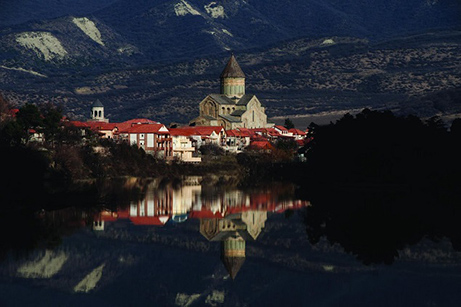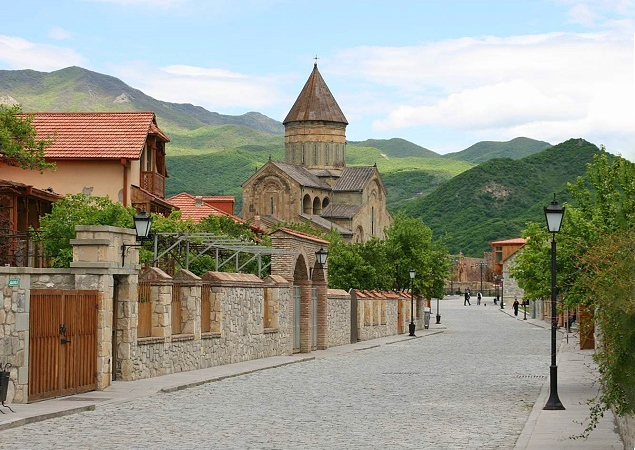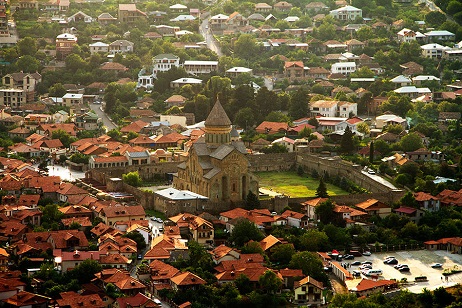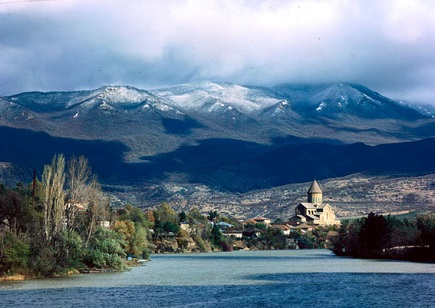Georgia celebrates Svetitskhovloba honouring historical cathedral and city

Georgia’s ancient capital city and its World Heritage monument is being celebrated nationwide today.
Each year on October 14 Georgia celebrates the Svetitskhovloba holiday, where Orthodox Christian pilgrims and visitors flock to the country’s ancient capital city Mtskheta, just outside Tbilisi, to mark the annual day of the city and its unique cathedral.
The public holiday celebrates the cultural and religious significance of the Svetitskhoveli Cathedral – one of the three Mtskheta monuments in the UNESCO World Heritage List – and the city around it.
Delivering the traditional celebratory sermon from the Svetitskhoveli today, Georgia’s Patriarch Ilia II announced churches across Georgia would now be open for prayers daily around the clock.

Mtskheta is a site of three UNESCO World Heritage monuments including, the Svetitskhoveli Cathedral (pictured).
While church-goers will be focused on religious celebrations, the holiday will also feature wide-ranging cultural occasions in the city including an exhibition of folk craftsmanship items, sports competitions and concerts of folk and pop music by local and countrywide bands.
The festive activities in Mtskheta will conclude with a special fireworks show in the evening.
The ancient capital of the East Georgian Kingdom of Kartli from the 3rd Century BC to the 5th Century AD, Mtskheta was also where Christianity was granted the status of official religion in 337.
The location was given the title of Holy City by Georgia’s Orthodox Church last year.
At the heart of Mtskheta sits Svetitskhoveli Cathedral, built in the 11th Century AD. According to legend the large cathedral was the burial site of Christ's mantle, while it was also a final resting place for a number of historical Georgian monarchs and noblemen.
Accepted as a UNESCO World Heritage site in 1994, Svetitskhoveli is the second largest church in Georgia after the recently built Holy Trinity Cathedral in capital Tbilisi.
Mtskheta is also the location of two other World Heritage monuments – the Jvari and Samtavro monasteries.
 Tweet
Tweet  Share
Share

